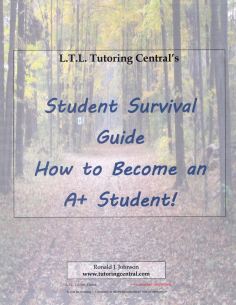First of all, you can have fun learning anything; however, cooking is a great way to learn many lessons.
Yes, he said, “cooking!”
Letting your children cook with you is a fantastic way to teach all kinds of lessons including reading, writing, and math – not to mention how to fend for themselves later in life. (Don’t underestimate the value of this. Many adults eat fast food and poor diets because they never learned to boil an egg.)
Yes, boys should be in the kitchen, too. I was a professional cook for fourteen years, so no problem. 
Reading
You can read recipes together either in books or online. Looking for foods and recipes to try can be exciting for everyone. Having a hand in the process is a great way to get children to try different foods.
As I mentioned with the reading recipe – ah, I mean reading blog done last time, (Fun Summer Learning – Read) you can share the reading in a variety of ways, depending on the child’s age and ability.
Writing
Copying recipes from the Internet, a magazine, or other source provides a way to practise printing or writing. Using recipe cards and organizing them by meals and/or alphabetically offers more learning opportunities. Your children can create their own personal binder or box of recipes.
You could start a blog of your own and have the children add photos and text, or they could each do a blog for themselves. They could write about the recipe giving information about how easy (or difficult) it was to make. They could write about the taste and the experience of making the meal, etc. Children are naturally curious, but they also love to teach others, so this can be a gateway into expanding their horizons.
Math
Obviously, there are math lessons to be learned when cooking. Your children can learn about measuring and weighing. You can have fun adjusting a recipe. For example, you might want only half the amount. This gives you the opportunity to work on division and/or fractions. You might want to double or triple a recipe, so multiplication skills  are practised. There are lessons around temperature and timing as well.
are practised. There are lessons around temperature and timing as well.
Related concepts include learning to follow a sequence, following directions, and ordering steps logically.
Additionally, your children will learn to express themselves orally as you discuss food, recipes, how to follow the directions, and so on. This part of learning is just as important as the more recognizable reading, writing, and math skills. Being able to express opinions, ask questions, and orally manipulate information will go a long way to helping them stay engaged and motivated to learn even more.
Mistakes
Yes! Mistakes will be made. Sometimes a recipe won’t work at all. Sometimes the result is edible, but – “let’s not try that one again!” Most of the time, the result won’t match the beautiful (often photo-shopped) picture. That’s fine. You will have more successes than failures, and we learn a lot from mistakes. Teach your children how to laugh, move past the errors, and use the mistake as a learning platform for the next attempt.
Have fun with it! Remember learning should be enjoyable.
Look below for some affiliate links to beginner cooking courses!
Summer tutoring lessons are a great way to improve as well. Let’s get started on the learning path together.
Website: www.tutoringcentral.com

Your Path to Learning!
This weeks video: Cooking!








 improving.
improving.








 paragraph should be at the beginning of the paragraph – often the first sentence.
paragraph should be at the beginning of the paragraph – often the first sentence. made the case for your argument or point of view. This can be especially useful in argument paragraphs because it leads the reader to your conclusion drawing them in with your amazing proofs and supports.
made the case for your argument or point of view. This can be especially useful in argument paragraphs because it leads the reader to your conclusion drawing them in with your amazing proofs and supports.


 to keep doing a few questions long-hand as well. It uses the brain differently for basic skills. You will gain a much stronger understanding of “how” the math works. Of course there are complex calculations for which the calculator is required.
to keep doing a few questions long-hand as well. It uses the brain differently for basic skills. You will gain a much stronger understanding of “how” the math works. Of course there are complex calculations for which the calculator is required. 
 multiply whole numbers.
multiply whole numbers.
 resource for explaining the procedure.
resource for explaining the procedure. 


 Catnaps are good, too, if they are brief. (Catnaps might be a misnomer. Don’t sleep like your cat for sixteen hours a day!) Make sure you eat healthy meals – small and numerous is best to keep your body (brain is included) performing at a steady rate. Don’t let yourself off the hook! Wait – I thought you said to be kind to yourself? Yes, sometimes kindness = toughness. You need to be honest with yourself – no cheating – no lapsing on scheduled homework time – no excuses. The reward you get later is the kindness component.
Catnaps are good, too, if they are brief. (Catnaps might be a misnomer. Don’t sleep like your cat for sixteen hours a day!) Make sure you eat healthy meals – small and numerous is best to keep your body (brain is included) performing at a steady rate. Don’t let yourself off the hook! Wait – I thought you said to be kind to yourself? Yes, sometimes kindness = toughness. You need to be honest with yourself – no cheating – no lapsing on scheduled homework time – no excuses. The reward you get later is the kindness component.

 am going to drop twenty pounds,” or “I am going to get straight A’s by the end of the semester.” Think about the steps you can take to get there, and make these separate, achievable resolutions. There is no sense in setting yourself up for a fall. Also, with a step-by-step plan, you have done the “legwork” necessary to get to the end. You know what you need to do.
am going to drop twenty pounds,” or “I am going to get straight A’s by the end of the semester.” Think about the steps you can take to get there, and make these separate, achievable resolutions. There is no sense in setting yourself up for a fall. Also, with a step-by-step plan, you have done the “legwork” necessary to get to the end. You know what you need to do. can get you into the advanced class, or into the college of your choice, and/or into the career you really want.
can get you into the advanced class, or into the college of your choice, and/or into the career you really want.